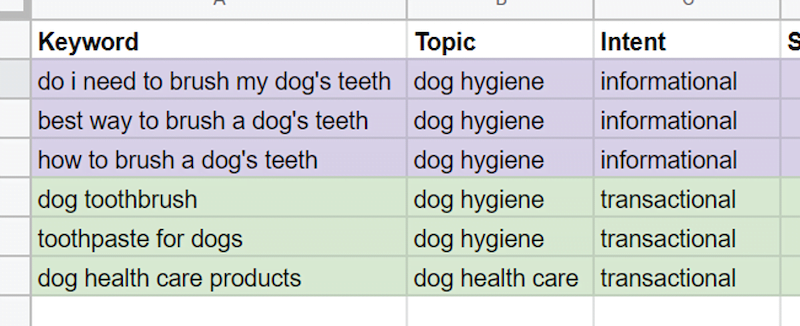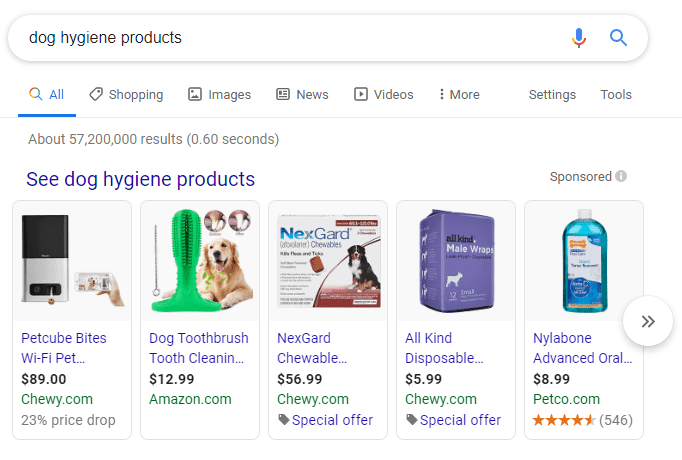Are you struggling to figure out how to find the perfect keywords for your niche—without breaking the bank on expensive subscriptions? You’re not alone! Every digital creator, blogger, or marketer hits this wall at some point. Good news: there are powerful, *completely free* keyword research tools available to help you zero in on the terms and topics that will skyrocket your traffic, sharpen your content, and give you a real edge over the competition. This blog will show you the best free tools to find keywords for your niche, show practical ways to use them, and answer all your burning questions about keyword research. Let’s open the door to smarter, more strategic content creation—starting right now!

What Are the Best Free Tools to Find Keywords for Your Niche?
Before we dive into the specific tools, let’s break down what we mean by “the best free tools to find keywords for your niche.” Keywords are the search terms your audience uses in Google, YouTube, or Amazon to find solutions, products, and information. Niche keywords are those that are highly relevant to your specific audience—tailored words and topics that are narrower and less competitive, but often more profitable. Using the right free keyword research tools allows you to uncover these valuable search terms without spending a penny.

Why Using Free Keyword Research Tools for Your Niche Matters
If you want your website or online business to thrive, understanding and applying strong keyword research is essential. Here’s why free tools matter:
- Cost-effective: You can get competitive insights without pricey SEO software.
- Unlimited experimentation: Test and discover as many keywords as you like.
- More targeted reach: Find niche-specific keywords your ideal audience is searching for.
- Beat competitors: Uncover low-competition keywords they may be missing.
- Boost organic traffic: Make your site more discoverable in organic search.
- Content inspiration: Generate blog post ideas that people actually want to read!
- No risk, all reward: Perfect for new sites, side projects, or if you’re still learning SEO.

Real Use Cases: How Niche Keyword Tools Solve Problems
Understanding the best free tools to find keywords for your niche opens up a whole world of growth opportunities! Here are some real-life scenarios:
- Blogger: Want to write about plant-based recipes? Free keyword finders can reveal high-volume, low-competition queries like “beginner vegan meal prep.”
- E-commerce site: Trying to sell sustainable yoga mats? Discover new keyword ideas such as “non-slip eco yoga mat reviews.”
- YouTube creator: Uncover content gaps with “how to start bird photography” trending in your niche.
- Small businesses: Local keywords like “best vegan cafe in Dallas” can bring you targeted traffic from your area.
- Affiliate marketers: Find hidden gem buyer intent terms such as “best camping stove for solo hikers.”

Step-by-Step: How to Find the Best Free Keywords for Your Niche
Ready for practical steps? Follow this workflow to find, validate, and use niche-specific keywords—all free:
Step 1: Define Your Niche
Get ultra-specific. Instead of “fitness,” go for “HIIT workouts for busy moms.” The more focused your niche, the easier it is to dominate with the right keyword strategy.

Step 2: Brainstorm Seed Keywords
Make a quick list of words and ideas related to your niche off the top of your head. Example: “HIIT for moms,” “15-minute HIIT,” “postnatal HIIT.” These are your seed keywords for further research.
Step 3: Use the Best Free Keyword Research Tools
Plug your seed keywords into these trusted free tools:
- Google Keyword Planner (free with Google Ads)
- WordStream Free Keyword Tool (wordstream.com)
- Seodity Niche Finder (seodity.com)
- Keyword Tool.io (keywordtool.io)
- Keyword.io (keyword.io)
- Google Trends (for trending search topics)
- Answer the Public (visualizes questions people ask)

Step 4: Analyze Keyword Metrics & Trends
Look at search volume, competition, CPC, and trends (seasonality or topic growth). Free tools will often show related keywords, question-based terms, and even content ideas to help you make smarter decisions.
Step 5: Build a Shortlist of the Best Keywords for Your Niche
Pick keywords that are:
- Low competition: Easier to rank for as a new or smaller site.
- High relevance: Matches what your audience actually wants.
- A decent search volume: Enough people are searching, but not so popular you’re competing with giants.

Step 6: Map Keywords to Content, Products, and Promotions
Assign chosen keywords to blog topics, product pages, video ideas, and ad campaigns. This ensures your content ranks for the exact things your audience is hunting for.
Step 7: Track Performance & Adjust
Use Google Search Console and free analytics to see which keywords are driving real traffic—and update your approach accordingly.
The Best Free Tools to Find Keywords for Your Niche (2024 Picks)
1. Google Keyword Planner
Still the industry standard even in 2024. Free, reliable, and includes rough monthly search volumes, competition levels, and suggested keywords. Requires a free Google Ads account to access.
2. WordStream Free Keyword Tool
Super user-friendly and perfect for niche keyword discovery. It pulls from a huge database and breaks down search volume and competition.

3. Seodity Niche Finder
Especially powerful for niche site owners! Gives you clusters of related terms, trending topics, and long-tail keyword ideas for your chosen niche. Free plan offers solid functionality.
4. Keyword Tool.io
Known for its ability to pull keywords from Google Suggest, YouTube, Amazon, and more. Unbeatable for inspiring content ideas and finding what real users type into search.
5. Keyword.io
Similar to Keyword Tool.io, but often shows keywords with more context or grouped suggestions. Especially good for very specific long-tails in your niche.

Common Challenges, Myths & Objections (and Real Solutions!)
Let’s address a few common roadblocks or misconceptions about free keyword research tools for finding the right keywords for your niche:
- Myth: Free tools are outdated or inaccurate.
Many update in real-time and use Google’s API or autocomplete/suggest technologies. They may not always reveal exact search volumes (which paid tools sometimes estimate anyway), but their keyword recommendations are highly actionable. - Objection: “But my niche is too obscure!”
The power of long-tails: Even if your audience is small, these tools can reveal specific questions and topics real people are searching for. - Challenge: “I don’t know how to use keyword research for content.”
Match keywords to article titles, product names, service pages, or YouTube video scripts. Start with the lowest competition phrase and build up. - Myth: You need paid tools to win in SEO.
While paid tools are helpful for big sites, you can easily make massive progress with free tools, especially for new or niche projects. - Objection: “Google Keyword Planner asks me to spend money.”
You only need to create a (free) account; you don’t have to run ads to use the planner’s keyword research features.

Frequently Asked Questions: Free Tools To Find Keywords For Your Niche
What makes a keyword tool the “best” for niche research?
The best free tools offer comprehensive keyword suggestions, volume trends, competitive analysis, and are intuitive for beginners. They help find both broad and long-tail keywords relevant to your niche and audience.
Is it possible to rank for competitive keywords using only free tools?
Yes! Free tools surface hidden gems—long-tail keywords with decent volume but low competition, ideal for smaller sites or new projects.
How often should I do keyword research for my niche?
Ideally once a month or whenever planning new content. It’s essential after algorithm changes or when launching a new site section.
What’s the difference between a seed keyword and a long-tail keyword?
A seed is the core topic (e.g., “HIIT workouts”). Long-tails are detailed, specific phrases built around that seed (e.g., “15-minute HIIT for moms at home”).
Can I do local SEO keyword research with free tools?
Absolutely! Tools like Google Keyword Planner and WordStream let you filter by location and even “near me” searches.
Do free keyword research tools show real search volume?
Many give ranges (e.g., “100–1,000/month”). While not exact, they’re enough to prioritize topics vs. competitors. Use Google Trends for seasonality!
Are these tools safe and do I need to sign up?
Most tools are safe, web-based, and require minimal signup (sometimes email or a free account). No software downloads needed!
Which tool is best for beginners?
WordStream’s Free Keyword Tool is ideal for new users because of its clean interface and actionable insights. Seodity’s Niche Finder is great for quick niche exploration.
Can these free tools help with YouTube, Amazon, or Etsy keyword research?
Yes! Keyword Tool.io and Keyword.io both offer platform-specific keyword ideas for YouTube, Amazon, eBay, Play Store, etc.
How do I turn keyword research into real content?
Assign keywords to blog post titles, product descriptions, FAQ pages, or video scripts. Always match a keyword with searcher intent!
How many keywords should I target per page?
Target one primary keyword and a handful of closely related secondary keywords per page for optimal SEO results.
Can I use free tools for competitor keyword analysis?
Some tools let you enter a competitor website and see what keywords they rank for, but for deep competitor research, a paid option is usually best for full datasets.
Conclusion: Start Using the Best Free Tools to Find Keywords for Your Niche Today!
Gone are the days when powerful keyword research was only for those who could afford expensive premium tools. As you’ve seen, there are *incredible* free keyword research tools (WordStream, Seodity, Keyword Tool.io, Keyword.io, and more) that can help you uncover exactly what terms and topics resonate with your audience—and your niche.
Remember: Consistency beats complexity! Use the steps, tools, and strategies above consistently, and you’ll keep uncovering winning keywords to fuel your blog, business, or brand.
Don’t just read—try them out! Make a shortlist, pop your niche ideas into each tool, and watch your website or project grow with smart, targeted keywords.
Ready to get started? Check out our in-depth guides on keyword research, SEO content planning, and link building at DigitalWithSandip.com—and let free keyword research take your niche site to the next level!
For even more SEO strategies and hands-on tips, browse our related articles:
- SEO Content Strategy: Step-by-Step Guide
- Best SEO Tools for Beginners and Pros
- How to Rapidly Grow Your Niche Site
And if you have a keyword success story to share, drop it in the comments or connect with us on DigitalWithSandip.com!

